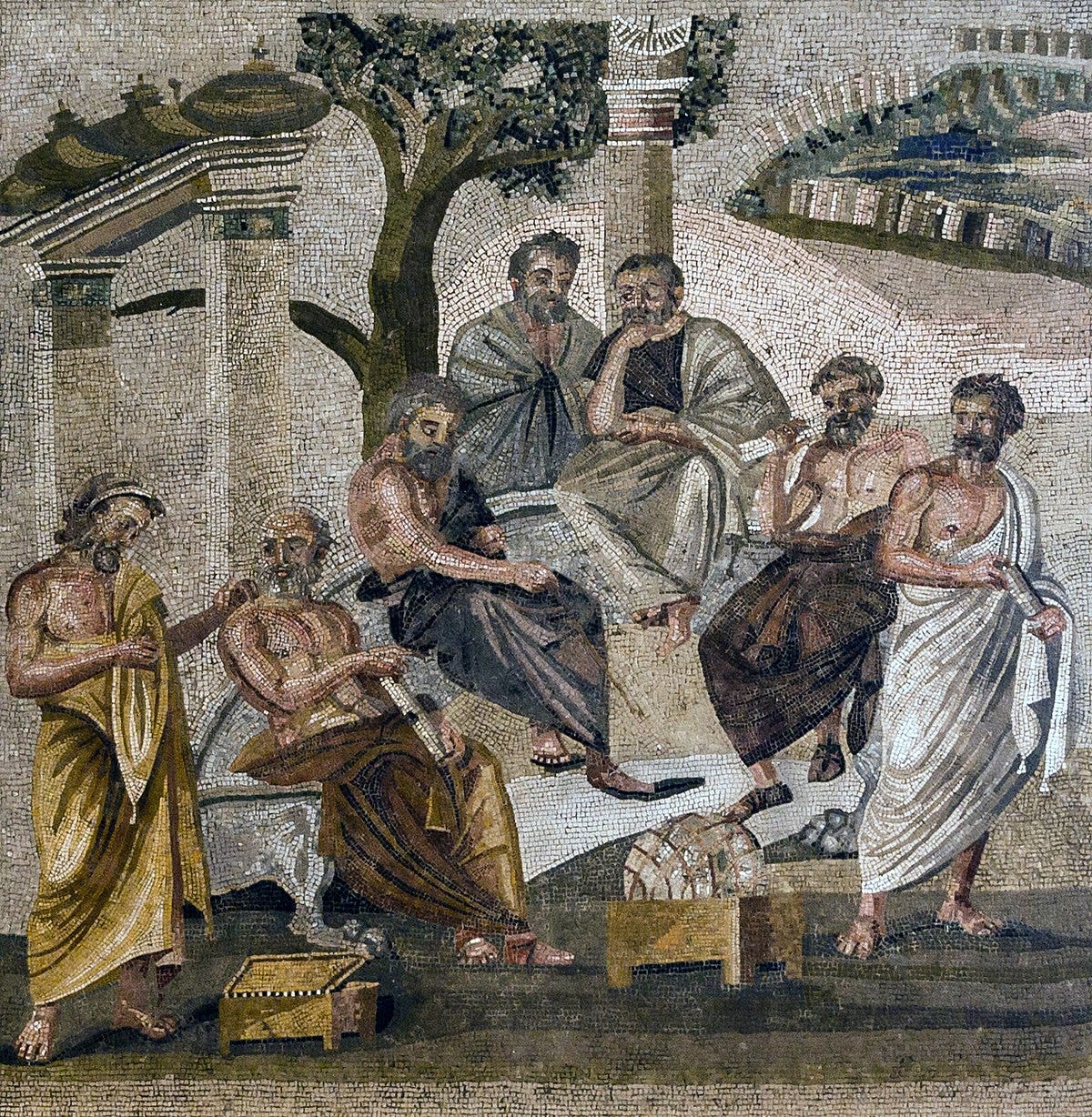On Reading Plato
An Introduction
I’ve been discussing Plato’s Republic on X spaces (Wednesday nights at 8:30pm MTN time) and a couple of people messaged me asking about my interpretive approach. The best place to go is to consider Leo Strauss’ City and Man (pgs 50-62). The introductory remarks below are a brief distillation of things I’ve learned from observing Strauss’s writings in addition to some his students’ approaches.
Logographic Necessity
In Plato’s Phaedrus, Socrates argues that the best kind of writing is that which is made in accordance with logographic necessity—which is to say, written in such a way that every word is placed precisely where it needs to be in order to communicate the book’s teaching. Someone writing this way would not be working out their ideas while writing, but would already have them firmly in mind as they carefully craft their work.
If we assume that Plato wrote with logographic necessity, it follows that formulations which are puzzling, perplexing, or mysterious are invitations to think or indications that our own understanding has fallen short. If an argument seems weak or out of place, it is our job to try to understand why it is where it is. It also means that small details matter, even the ordering of things in a list; or sometimes when Socrates seems to repeat himself, he make a crucial omission, substitution, or addition that changes the meaning of the repetition.
The Dialogue Form
Plato writes dialogues and not treatises. In most of the dialogues, we see Socrates speaking with other characters or interlocutors in a specific place at a specific time. We have to understand the arguments that Socrates makes in light of the dramatic situation of the dialogue.
A helpful example illustrates this: At the end of Plato’s Meno, Socrates argues that virtue is divine dispensation given by the gods. At the end of Plato’s Protagoras, Socrates argues that virtue is a hedonistic calculus. It is impossible for both of these claims to be true. So, either Socrates is foolish, or, he makes different arguments to different people—and that the arguments are for that person. Meno might need to take piety and the restraints it puts on humans more seriously, for, we know from Xenophon that he was an extremely vicious man. Conversely, Protagoras quietly harbors an admiration for noble acts of courage, and so Socrates tries to bring this attachment more firmly into Protagoras’ awareness, by presenting virtue in the most ignoble way possible.
If we consider our own experience and the conversations that we have with others, we realize that we often don’t speak with frankness or completely say all of what it is that we have in mind. The farther apart our presuppositions or moral opinions are from the person we are speaking with, the the more work and the more gradual we must be in persuading or arguing with them. Many of Socrates’ arguments may be in the service of leading a particular interlocutor to see or forget certain things.
A decent heuristic: when reading Plato, really try to imagine what it would be like to actually be in that conversation. How would the words effect you if you being pressed on that particular question? You have to see the interlocutors as living and breathing human beings who may even sometimes blush.
Esotericism and Persecution
Something we have to keep in mind while reading Plato, is that philosophy is held in suspicion. Philosophy demands radical openness to the truth and therefore a willingness to question and re-think our most cherished opinions, about justice, love, nobility, the gods, etc. The city or political community, on the other hand, needs to rest on static opinions about the very same questions.
Political life is about action. Politicians do not, cannot, and should not, spend all of their time thinking through the question of justice to the bottom. Rather they need to take action on the basis of commonly accepted opinions about the way things are. Philosophic questioning can paralyze political action. The difference between philosophy and politics means that sometimes Socrates conceals from others how radical his own questioning sometimes is. This is partially out of a desire to protect himself from persecution. It is also partially to protect or shield the city.
There are 35 dialogues attributed to Plato. Of all of the interlocutors that Socrates speaks to, only one is said to have become a philosopher as a result of speaking with Socrates (Polemarchus from the Republic). That detail suggests to us that most human beings, by nature, are not capable of being philosophers. The demands that philosophy places on their heart and mind is too high. For this reason, then, Socrates is often compelled to speak within the horizon of his interlocutors’ moral opinions even as he quietly points beyond them.



Very nice. Thank you for this!